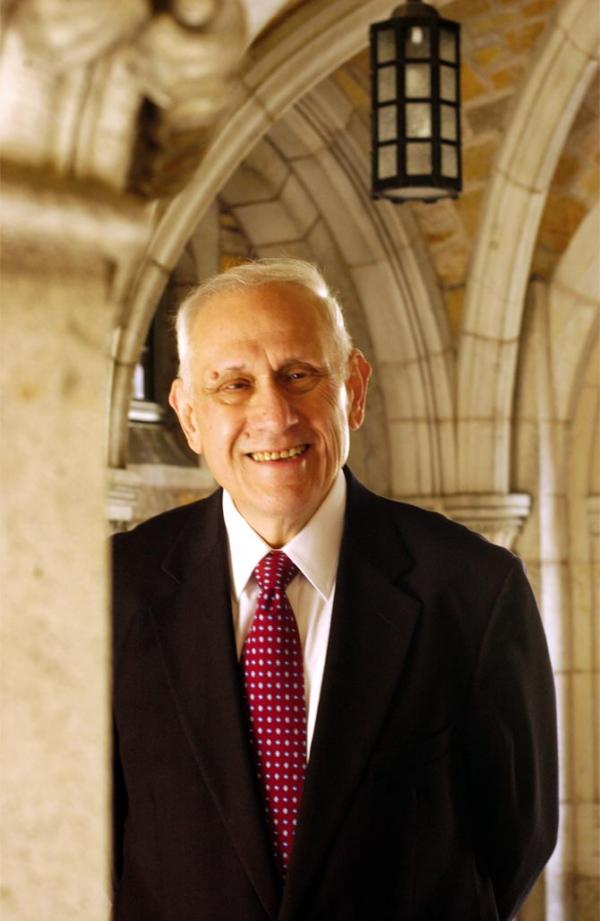Statement from National Endowment for the Humanities on the Death of Donald Kagan

Donald Kagan
Photo by Michael Marsland

Donald Kagan
Photo by Michael Marsland
The National Endowment for the Humanities extends condolences upon the death of Donald Kagan, the historian of ancient Greece and longtime professor of Yale University whose interests and writings included modern history, international relations, free speech, baseball, and the virtues of a liberal arts education.
In the early 1970s, Kagan received two NEH fellowships. The first supported research on Thucydides and the Peloponnesian War, the subject at the heart of his scholarly career. The second supported research on the history of how wars begin, leading eventually to his well-known 1995 book On the Origins of War and the Preservation of Peace.
In 2002, Kagan received the National Humanities Medal from President George W. Bush. In 2005, he delivered the Jefferson Lecture in the Humanities, the highest award in the humanities bestowed by the United States government.
A popular teacher and lecturer, Kagan was “very generous to his students,” wrote one of his former students, Barry Strauss, in Humanities magazine. Citing the many careers in the academy and elsewhere that Kagan helped launch, Strauss also reported on the many times he brought students into his life outside the classroom, with invitations to lunch with special guests and to Yale football games, where the play on the field gave way in conversation to the Greek love of sport.
Well remembered for his many books—especially his four-volume history of the Peloponnesian War published between 1969 and 1987—the always erudite Kagan wrote with style and verve. In the New Yorker, George Steiner described Kagan’s Peloponnesian War series as possibly “the foremost works of history produced in North America in this century.”
Speaking “in defense of history” (the title of his Jefferson Lecture), Kagan made an argument for history as the “queen of the humanities,” providing future generations with not only a frame of reference for our present condition, but memorable narratives rich in “moral implications, personal and political.”
“Like literature, specifically the epic poetry of Homer, [history] has the responsibility of preserving the great, important and instructive actions of human beings, individually and in the mass so that we may marvel at them and learn from them.”
On August 13, 2021, NEH’s acting chairman Adam Wolfson issued a statement: “A major historian of the ancient world, an inspired teacher, an eloquent writer, and an enthusiastic believer in the humanities, Donald Kagan was all of these and more. He will be remembered and read for a long time to come, enriching us long after the sad news of his passing.”